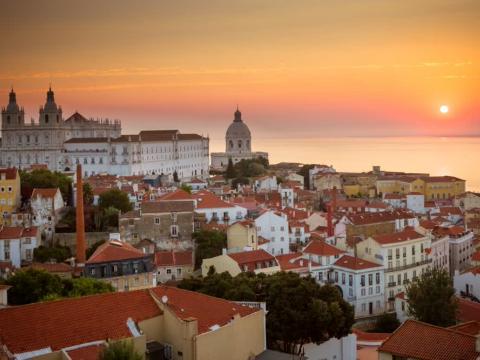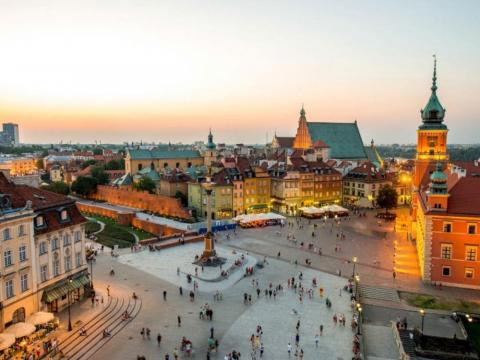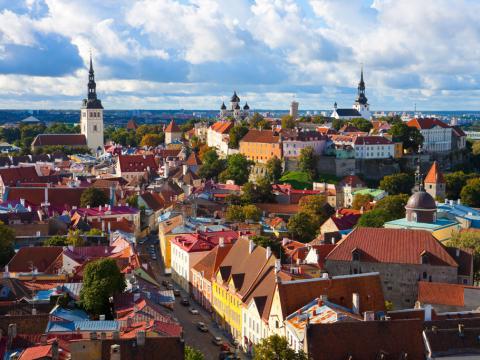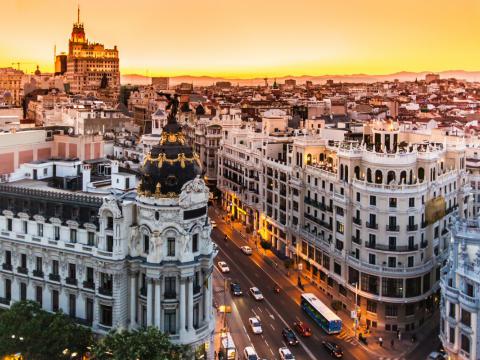Portugal in a Nutshell
Portugal is located on the western side of the Iberian Peninsula, with two Atlantic Ocean archipelagos. Despite its small size, it has a diverse range of landforms and climates between the Atlantic coast and the mountains. There are several ancient sites in Portugal, as well as relics from the Roman Empire and the Age of Exploration, when Portuguese explorers discovered the Cape Route across Africa and completed the world's first circumnavigation. Although Portugal is modern and established, it retains a significant amount of traditional culture in the form of handicrafts, cuisine, music, and dance.
Portugal's people today have a diverse heritage drawn from all over the world. More than 50,000 years ago, the earliest recorded Iberian cultures left marks and cave paintings. The Iberian peninsula was a rich in natural resources, with densely forested trees, wild life, horses, and livestock. Antiquity was well aware of the existence of mining for minerals such as gold, silver, copper, tin, iron, volfram, and mercury. According to academic study, the Celts and Iberians mixed with North Africans, Phoenicians, Middle Easterners, and Greeks and became influential merchants spreading as far afield as the British Isles and other European areas, leaving traceable ties with the Irish, Cornish, and Welsh people's heritage. The later Lusitanian tribes dominated large areas of Western Iberia for over a thousand years, and were known for their high quality iron and steel working expertise, as well as their excellent horse rearing and riding abilities, until the Romans arrived during the Punic Wars and colonized much of the peninsula, almost eradicating all traces of the previous civilizations through genocide and assimilation practices.
Germanic and Frankish people migrated west after the fall of Rome, settling in Iberia and Northwest Africa. Following the advent and spread of Christianity, fighting between Pagan tribes and new Christian chieftains in the 7th and 8th centuries aided the better-organized Moorish Muslims in invading and controlling roughly three-quarters of the peninsula for around seven hundred years.
By the end of the ninth century, Iberian Christians had regained some influence over their ancestral territory, paving the way for the "reconquista" period, which resulted in the establishment and expansion of the Portuguese state, as well as that of Spain to the east. The Christian kings' policy of religious conquest in the Iberian peninsula began in the early 16th century, with forced conversion or expulsion of Jews and Muslims.
Despite its strong relations with the Spanish people, Portugal today has a distinct cultural and linguistic heritage. Because of the many beautiful beaches and long warm summers, a rich gastronomy, historical and cultural heritage, as well as the fabulous golf courses, surfing the giant waves at Nazaré, and religious pilgrimage to Fáti, it has become an acclaimed international tourist and vacation destination. Surprisingly, many ski resorts are open for business in the Serra da Estrela region throughout the winter.
Last modified on 04/25/2021 - 11:42
Towns
Currently there are no places in Portugal.
Currently there are no articles about Portugal.
Currently there are no trip reports about Portugal.
Currently there are no photo of Portugal.
Currently there are no videos of Portugal.





